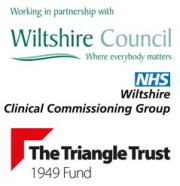A campaign to help the UK’s 1.8million older carers have better co-ordinated care was launched today by Carers Trust, the largest charity for unpaid carers, of which Carer Support Wiltshire is a network partner.
There are more than 1.8 million carers over the age of 60 in the UK* and the number is growing, with many older people looking after their sick or disabled husband or wife, while struggling with their own health needs.
Yet when it comes to ensuring that all the different organisations involved in caring for them know what is happening and that the right care is in place, there is a drastic lack of co-ordination.
Carers have been left angry and frustrated because of appointment clashes, difficulties navigating the health and social care system and being sent to locations that are impossible for them to reach.
But Carers Trust, which gives support and advice to people providing unpaid care to their sick, or disabled family member, has launched an online campaign called Where is my care co-ordinator – which is the first phase of a new, wider campaign called Speak up for older carers. The campaign aims to appeal for more support to make carers’ lives easier.
Gail Scott-Spicer, CEO of Carers Trust, said:
“The stories that carers are telling us are shocking. Five different appointments in one week in different locations and stories of not being able to get to their appointment because of difficulties getting to the location due to lack of transport.
“We’ve launched our “Where is my care co-ordinator” campaign to appeal to health and social care professionals to make life easier for carers by working closer together to help them overcome some of the frustrations they face.”
Many carers want a single point of contact or for someone to take responsibility for co-ordinating the care.
Gail Scott-Spicer continued:
“The life expectancy of older people is increasing and therefore people are caring for longer and for later into their lives, so it is crucial that care is well co-ordinated.
“Some simple steps like improved IT systems and early identification and referral to support services could make all the difference to stop the burn out of a carer and helping to smooth out what is already a difficult and challenging situation.”
The campaign was launched following a series of meetings with older carers across England to ascertain the issues they were facing, what would have been helpful for them to know, whether they had a care plan in place and whether they had discussed their future care needs with family and friends and with each other.
Carers Trust says the information will help to increase the charity’s knowledge of the needs of older carers and to look at what needs to be done to help them and potential carers plan for the future.


